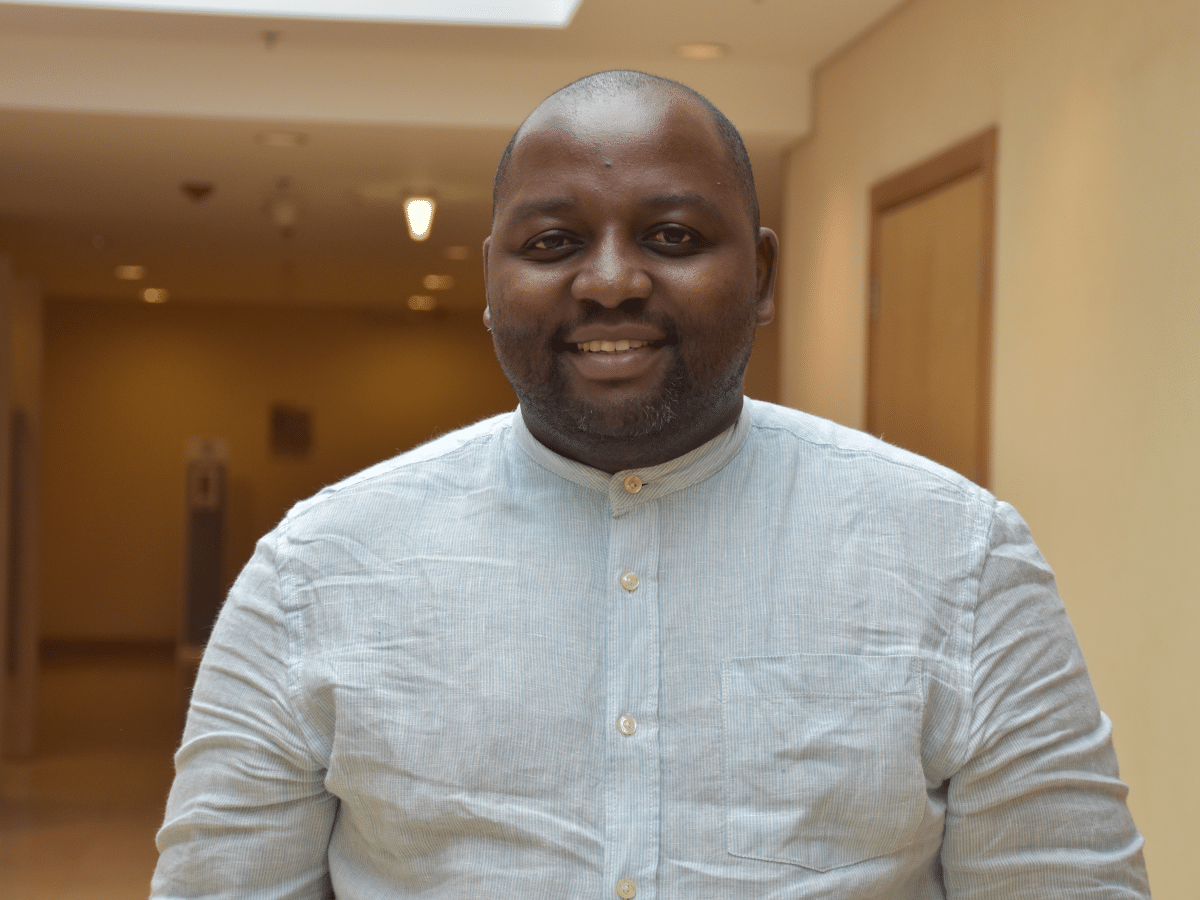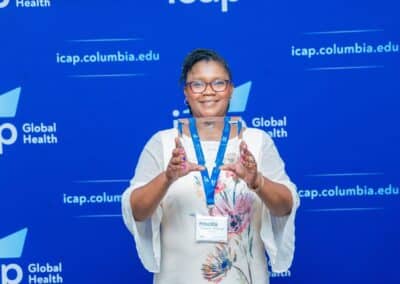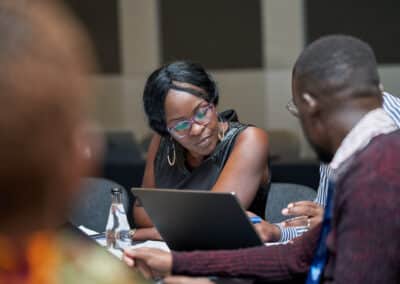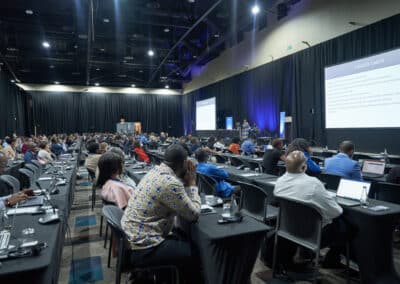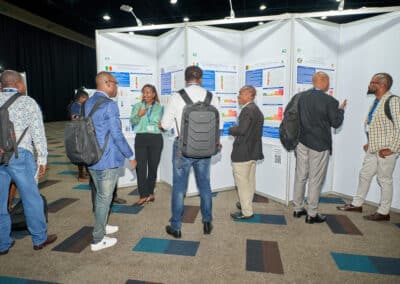For Lesotho, a country that has nearly achieved the UNAIDS 95-95-95 targets, despite a high 23 percent HIV prevalence rate, the recently held CQUIN Differentiated Service Delivery Across the HIV Cascade meeting was a highly beneficial experience. CQUIN leadership invited a delegation from the Lesotho Ministry of Health to observe the meeting as Lesotho considers becoming CQUIN’s 22nd member country. Tapiwa Tarumbiswa, MD, HIV/AIDS manager at the Lesotho Ministry of Health, participated in country breakout sessions and discussions at the meeting. After the meeting, Dr. Tarumbiswa sat down to share his experiences on why the meeting was a valuable platform for advancing HIV care, treatment, and service delivery. He also shared Lesotho’s DSD progress and the learnings he is taking home from the meeting.
You joined this meeting as an observer to better understand the CQUIN network. What are your observations and experiences?
Our experience as a delegation has been that the meeting was incredibly insightful, informative, productive, highly beneficial, and an excellent networking opportunity. I deal with strategy, policy, and guidelines at my level in the ministry, and it was very refreshing to see how easy it is to access high-quality DSD resources. I believe that if we decide to become members, we will be able to leverage those resources in the future to develop evidence-based HIV policies, strategies, guidelines, job aides, SOPs, etc. In addition, it was exciting to see the discussions within our context. We are next door to South Africa, Eswatini, and Zimbabwe, and being able to access their resources is impressive.
You joined teams from other countries at this meeting to listen to their experiences on linkage, retention, and re-engagement. What were some of the highlights from those conversations?
What I found fascinating about this platform is how you bring countries into a room, and technicians can have an open, friendly, and robust discussion on technical issues, challenges, best practices, and more. In Lesotho, we have a challenge with HIV prevention, particularly with messaging for men, so we are taking several lessons back with us. When we were in a room with South Africa, we learned about the “Mpilo coach” – men who advocate for HIV case identification, linkage, retention, and re-engagement. It is an innovative concept, and we have already started networking with the PSI team to follow up. We believe implementing such a campaign will benefit us because men are left out of our HIV response.
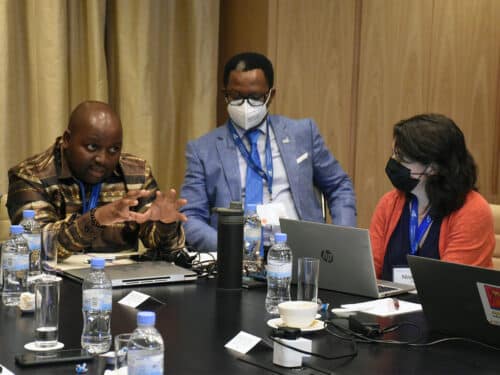
Dr. Tarumbiswa, Dr. Felix Ndagije (ICAP Lesotho Country Director), and Dr. Nina Hansen (PSI, South Africa) in a country breakout session between Nigeria and South Africa
Another interesting lesson was on the key populations (KPs) DREAM villages from Rwanda. KP programming is another critical area in Lesotho’s response. We are at a phase where we are scaling up models that would best suit that population, so this was an excellent example of how another country is creating a safe space for KPs. Kenya impressed me greatly with their re-engagement voice of client feedback tool, a survey re-engaging clients take so health providers can find out why they came out of care. I think it’s a very low-cost mobile app, which is cheap and easy to implement. They really showed us the innovation of leveraging technology to generate data that can inform programming.
How important are these discussions and forums in driving policies to achieve HIV epidemic control?
These forums are critical and need to continue because these are the forums where the policies, new guidelines, and best practices are shared. One thing I take from here is that you quickly realize that you don’t need to reinvent the wheel. Other countries have done it, and it’s an issue of getting and adapting those resources, and this forum assists in getting those resources faster. In addition, it helps countries see each other’s best practices to improve. I think in the long term, because these platforms facilitate monitoring and reporting, it’s an indirect tool to hold countries accountable to keep pushing the agenda of “what are we doing best to identify HIV-positive patients to link them to care, retain, and re-engagement them.” Ultimately, all this significantly contributes to epidemic control.
What is the state of differentiated service delivery in Lesotho?
In Lesotho, we have been very fortunate to receive immense support from different development partners and NGOs. We’ve done a lot since 2016. Lesotho has drafted DSD guidelines with many DSD models in our care and treatment guidelines. For example, we started community ART initiation in 2017 as a standard. Six-month MMD is at 72 percent coverage, and the remaining 28 percent of care recipients are on three-month MMD. We’ve got teen clubs, psychosocial support groups for young kids, and community dispensing of ART using ATMs and lockers. I think we are ahead on several DSD models that we can possibly share the next time we come. The issue is we perhaps haven’t reported any of our innovations in such a forum, and that is one of the things we are looking forward to once we hopefully assume membership. We have an estimated 324,000 people living with HIV in Lesotho, disproportionately affecting women, and a lot of the new HIV incidence is in young adolescent girls. In addition, we have populations that are still left behind. CQUIN is a high-value platform. We will learn a lot and benefit a lot, but we can also give a lot to other member countries.


